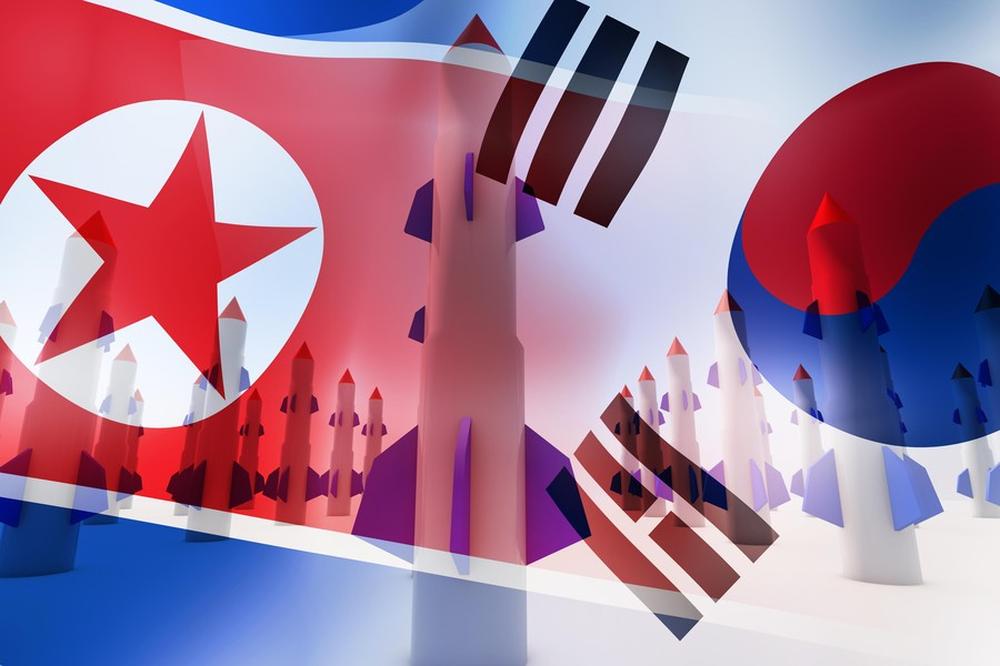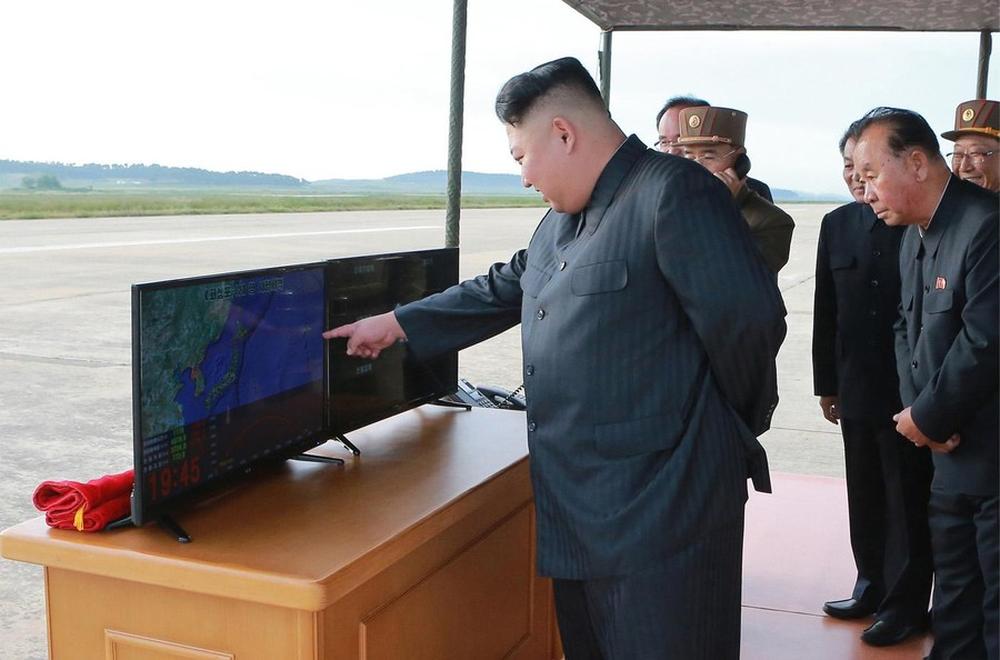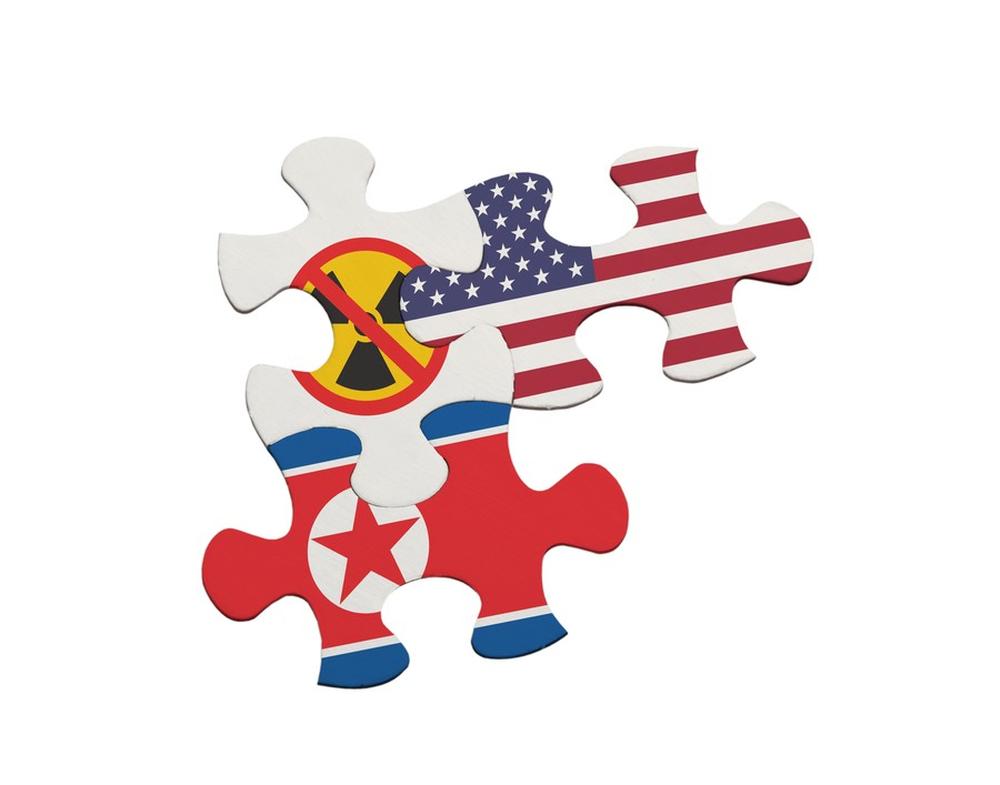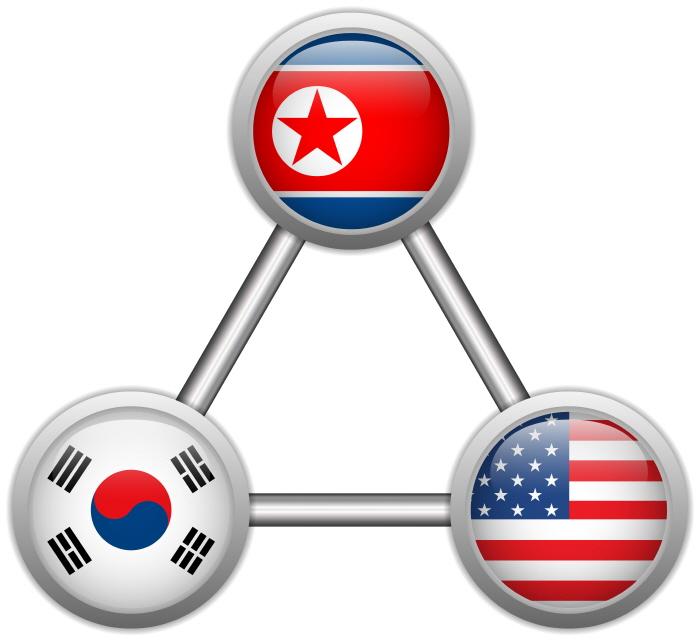- #Economy & Trade
- #Global Issues
- #North Korea
- #Sanctions & Human Rights
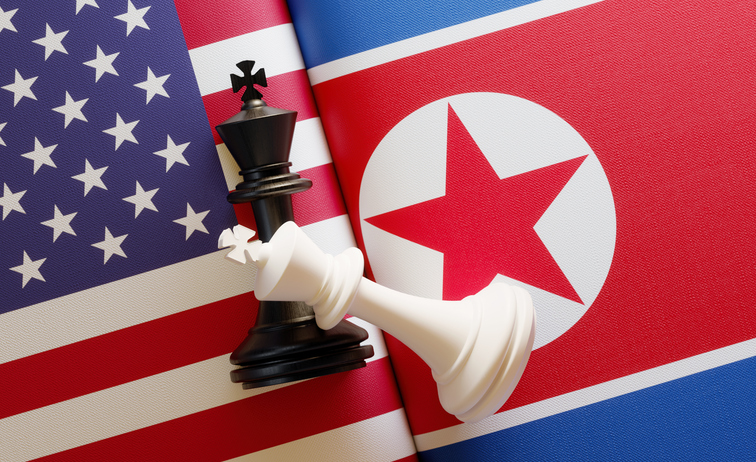
Historically, North Korea’s time-tested tactics has been to welcome a new U.S. administration with a provocative weapons test; the North greeted both the Obama and Trump administrations only weeks after their inaugurations with long-range missile and nuclear tests. But seven months after the Biden administration entered the office, we have not seen the kind of provocation we have seen from the North in the past (the North tested only a couple of short-range missiles in March), even as South Korean President Moon Jae-in held his fist successful summit with President Biden in May. At the same time, the North has not responded to the Biden administration’s call to return to dialogue. Pyongyang has just reached out to Seoul, reopening a hotline between the two governments and potentially paving the way for greater aid and economic cooperation. But North Korea has made no outreach to Washington. Indeed, there has been no dialogue between Washington and Pyongyang since the North broke off working-level talks with the Trump administration in Sweden in October 2019. North Korea appears to be practicing its own version of strategic patience with the United States. The question is why? There are two main reasons.
The primary reason seems to be Pyongyang’s preoccupation with domestic issues—preventing the spread of COVID-19 and focusing on internal economic problems. The past year and a half have been an unusual time for North Korea, just as it has been for the rest of the world. North Korea was the first country to close its border with China—the North’s largest trading partner and key source of food—in January 2020. Cutting off commerce with China devastated import and export markets for the North. According to China’s customs data, by spring 2021, North Korean imports from China had dropped by some 90%. Moreover, the North’s draconian restrictions on foreign trade, prolonged border closures, suspension of tourism, and shutting down of many public sites and private markets together have had a dramatic impact on domestic food production and supply, hurting the North’s economy perhaps more than the toughest UN sanctions. Kim Jong Un acknowledged the current challenges when he referenced the “Arduous March” of the famine years in early June 2021. Kim admitted that the North’s food situation remains “tense” while the North’s state television also made a rare admission that the country is currently facing a food crisis.
What is unclear is the extent of the COVID crisis in the North. After saying for over a year that it has kept COVID-19 at bay, the North finally signaled in June that it has not prevented the spread of COVID-19: Kim berated regime officials for “crucial failures” in national pandemic measures that caused a “great crisis.” He then warned of possible “grave consequences” if the COVID prevention measures are not strictly enforced. It’s far from clear the extent of the COVID outbreak currently in North Korea, but given that the North is completely unprepared for a medical emergency of this magnitude, it makes sense that the regime is paranoid about it.
As a totalitarian dictatorship, North Korea can impose extreme measures to prevent the spread of COVID, including sealing off affected regions. The North has reportedly taken various drastic steps in its anti-COVID measures including harsh punishments for quarantine officials, including the death penalty or life imprisonment, and there are even rumors of the North issuing “shoot to kill” orders in the buffer zone on the Chinese border to prevent a virus outbreak.
But it’s also highly probable that the virus can spread rapidly despite the regime’s extreme efforts to curb it. Some 43 percent of the population, or 11 million people, are already malnourished, making them highly vulnerable to infectious disease. The North also lacks infrastructure to fight a pandemic. Its crumbling public healthcare system is underdeveloped, dilapidated, and starved of public investment; its hospitals are barely functional and lack medicine. According to the John Hopkins University’s 2019 Global Health Security Index, North Korea is ranked 193rd out of 195 countries. Only two countries fared worse than North Korea—Somalia and Equatorial Guinea. When it comes to the category of rapid response to, and mitigation of, the spread of an epidemic, North Korea came dead last, after Somalia and Eritrea. Meanwhile, 1.7 million doses of Astra-Zeneca vaccine still have not been delivered to Pyongyang even though COVAXX promised shipments because of global production delays. Even that amount will only vaccinate a small portion of the population.
If the North Korea-China border remains closed for much of the rest of the year, which looks increasingly likely, food shortages and dire economic situation will continue. If there were to be outbreak of the coronavirus pandemic, a major humanitarian crisis is a real possibility. This helps to explain why Kim is now trying to improve relations with the Moon administration: The North desperately needs to get aid and economic activity from the South in this time of pandemic and misery.
The second reason for not responding to the Biden administration’s overtures to talk is likely because the regime has seen returning to talks as futile—at least until now. Since the embarrassment Kim suffered in Hanoi when negotiations with Trump failed, Kim is likely much more cautious about engaging with the U.S.
The Biden administration, following a months-long review, announced its North Korea policy in April, calling it “diplomacy, as well as stern deterrence.” On paper, the new administration has tried to strike a balance between the “strategic patience” approach of the Obama era and Trump’s hope for an all-inclusive grand bargain, saying it will take a step-by-step approach with the hope of eventually achieving denuclearization. From the North Korean perspective, however, Biden’s new policy likely amounts to strategic patience redux since Kim Jong Un has insisted since the Hanoi Summit that he won’t give up anything—and that he may not even agree to talks—unless the United States makes significant unilateral gesture first like lifting sanctions, which is clearly a nonstarter for the Biden administration. In fact, Biden administration officials have repeatedly emphasized that the sanctions will continue.
In short, there have been few incentives for the North to engage with the Biden administration since Washington’s newly unveiled policy is not all that new or bold from Kim’s perspective. Kim probably calculates that it is better to wait and see if the Biden administration will demonstrate some flexibility down the road; whether, for example, it will scale down or limit the scheduled U.S-ROK joint military exercises. But if large-scale exercises continue as scheduled, the new rapprochement from Pyongyang to Seoul may be in jeopardy. Kim may calculate that the longer he waits to talk to Washington, the more leverage he will gain when and if he returns to negotiations since his nuclear and missile arsenals continue to grow.
None of this means that the North has given up its tried-and-true playbook of using “peace offensives” and provocations to try to force concessions from Washington and Seoul. It’s simply a question of timing. If the North wants sanctions relief and if Moon can’t deliver, sooner or later it will restart testing of strategic weapons, including the demonstration of new advances like submarine-launched ballistic missiles and more powerful, multi-warhead ICBMS. But given the magnitude of its internal economic problems, the North may calculate that returning to a major provocation now will only invite global criticism and further sanctions, even from China, whose support the North needs. So, if the current outreach to South Korea doesn’t bear fruit, look for possible tests by the end of 2021 followed by another olive branch in early 2022 timed to the start of the Beijing Olympics and South Korean presidential elections.
Dr. Sue Mi Terry joined CSIS in 2017 as senior fellow for Korea and currently also teaches at the Asian Studies Program at Georgetown University and is an analyst and commentator for MSNBC and NBC News programs. Prior to CSIS, she served as a highly valued senior analyst on Korean issues at the CIA from 2001 to 2008 and was the director for Korea, Japan, and Oceanic affairs at the National Security Council from 2008 to 2009. From 2009 to 2010, she was deputy national intelligence officer for East Asia at the National Intelligence Council, and from 2010 to 2011, served as the national intelligence fellow in the David Rockefeller Studies Program at the Council on Foreign Relations in New York. Since leaving government, Dr. Terry has been a senior research scholar at Columbia University’s Weatherhead East Asian Institute (2011-2015) and a senior adviser for Korea at BowerGroupAsia (2015-2017). She holds a Ph.D. (2001) and an M.A. (1998) in international relations from the Fletcher School of Law and Diplomacy at Tufts University and a B.A. in political science from New York University (1993).
